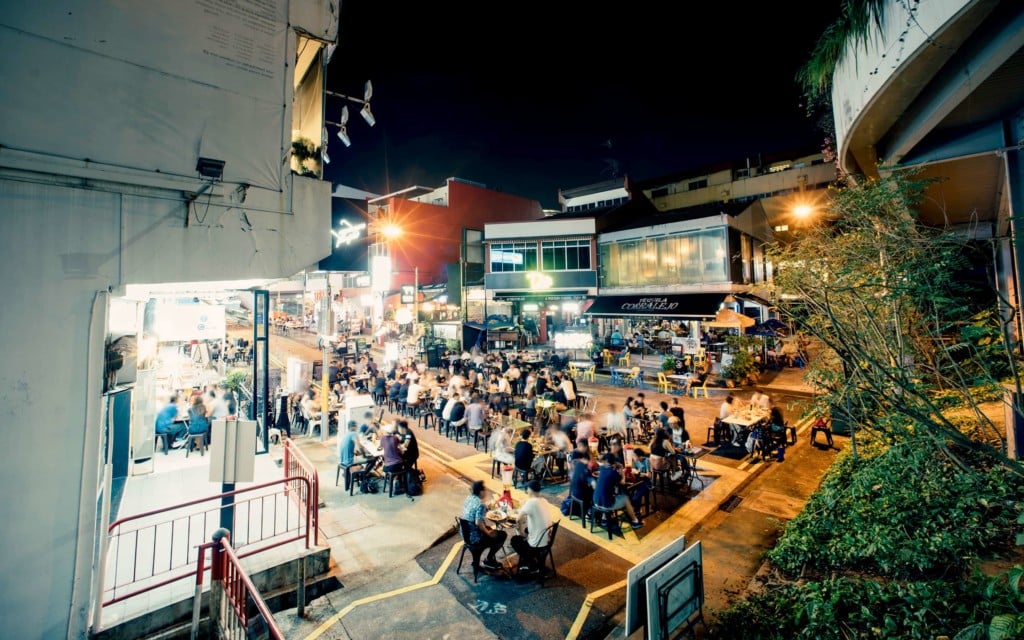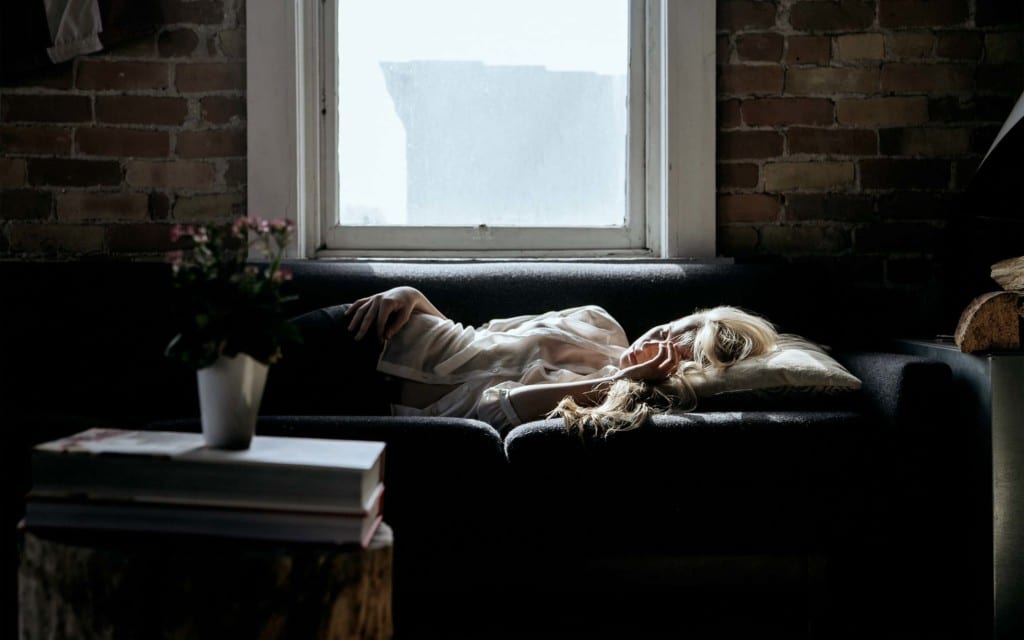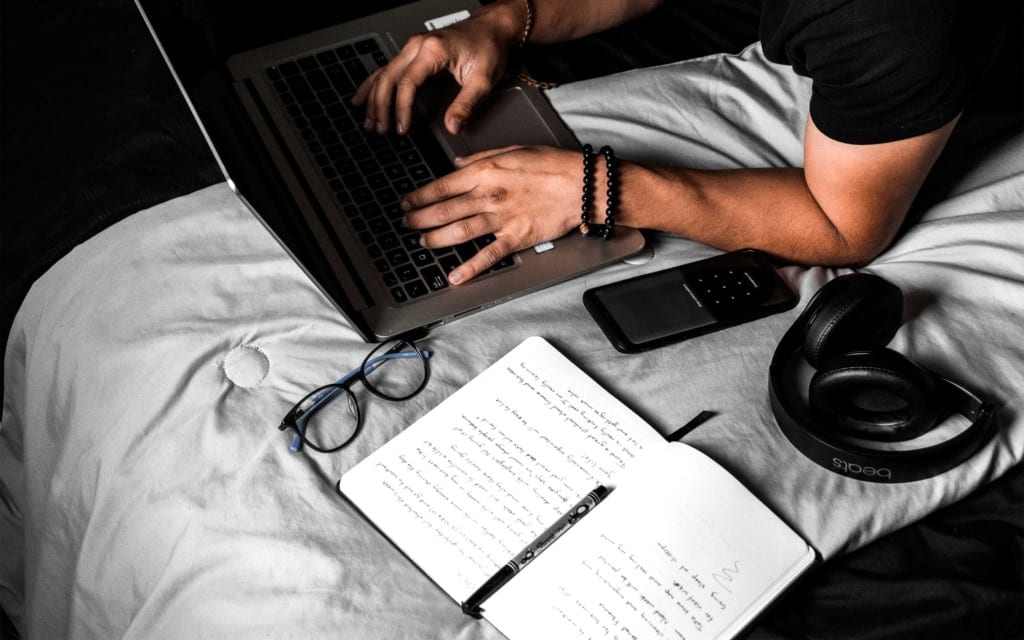Wondering how to recover after an all nighter?
You’re not the first, and you won’t be the last.
While we all know how important it is to get the right amount of sleep each night, it sometimes feels as though rest is getting in the way of other critical tasks.
For instance, you might need to finish a school assignment before an impending deadline, or you may have a big report to do for work.
When there aren’t enough hours in the day for all the tasks we need to get done, it’s common for our sleep to suffer.
The best way to avoid the hassle of recovering from an all nighter is not to stay awake for longer than necessary.
However, when a night of no sleep is required, it’s essential to know how to cope with the impact on your mind and health.
Learning what to do after a night of no sleep helps to get your brain back on track, so you can start enjoying your life normally again.
Here’s our guide on how to recover from an all nighter as quickly and painlessly as possible.

Recovering from an all nighter: The basics
Let’s start with the basics.
The first thing you should know is that you really shouldn’t be pulling an all nighter if you can help it.
While it might sound like a good idea to stay up partying with your friends every weekend — particularly in your younger years, lack of sleep can take its toll.
Sleep is how your body recovers and restores each day. Without it, your health and wellness will begin to crumble.
Here’s what happens when you miss a single night of sleep:
Your immune defences fall
Your immune system is the thing that protects you from disease and infection. What most people don’t know, is this system relies on plenty of sleep.
When you’re sleeping, your body releases cytokines — proteins that are critical to supporting the immune system.
As your levels of sleep fall, your immune system produces fewer antibodies and cytokines. In other words, you’re more likely to get sick.
Your brain takes a beating
Even if you’re running out of time before a big test, staying up all night isn’t a good idea. Not only are you left with the hassle of recovering after an all nighter, but your memory will take a hit too.
During sleep, the brain converts your day into long-term memory. That process suffers when you don’t sleep.
You may gain weight
Pulling an all nighter won’t mean that you suddenly wake up with a beer belly. It could make it more likely that you gain weight, though.
Studies show that people who are running low on sleep are more prone to over-eating.
You’ll be more emotional
Part of learning how to recover after an all nighter is figuring out how to control your emotions when you haven’t had any sleep.
People who are sleep-deprived are usually very moody and suffer mood swings throughout the day.
You might even make more impulsive decisions after an all nighter because you have a hard time thinking logically. All nighter’s take being cranky from a lack of sleep to the extreme.
You won’t look your best
Beauty sleep is a real thing, people! Poor sleep causes wrinkles, dark bags under your eyes and general swelling. It means you look less attractive and sadder than usual.
Your confidence is sure to take a hit if you’re not sleeping as you should be.

What to do after a night of no sleep
Now we’ve covered the pitfalls of pulling an all nighter. Let’s explore what to do after a night of no sleep, if you really can’t avoid it.
If you happen to be in a situation where you’ve been forced to stay up all night, there are a few things you can do to protect your health. You need to recover as quickly as possible and set yourself on the path to wellbeing.
For instance:
1. Reduce distractions
A lack of sleep makes it very difficult for you to concentrate. The best thing you can do to avoid ending up with a massive headache the day after your all nighter is to avoid multi-tasking.
Stop dealing with distractions as much as possible. Keep your day simple. Focus on one task at a time, and if you can, avoid going to work.
If you have to concentrate on something, turn your phone off and get rid of anything that might pull your attention away from the task.
2. Crank up the lighting
Dark or dimly-lit rooms are more likely to make you drift off. While catching up on sleep isn’t a bad thing, it might not be an option when you’re recovering from an all nighter.
To keep yourself awake, keep the room as bright as possible. This reminds your brain and body that it’s time for you to be alert. Consider moving lamps closer to your desk.
If necessary open all the blinds and curtains to soak up that natural sunlight.
3. Choose the right snacks
Food is the stuff that fuels us each day. When you’re recovering after an all nighter, you’re going to need specific kinds of fuel to keep your body running at peak performance.
This means drinking plenty of water and avoiding the urge to eat sugary sweets.
Stock your cupboards full of small snacks that are packed with complex carbs and protein. These will give you sustained energy and reduce your risk of an energy crash.
If you do need a dose of sugar, try chewing gum to boost your cognitive performance and encourage alertness.
4. Take a lot of breaks
Just as it’s important to avoid getting distracted after an all nighter, it’s also crucial to give your brain plenty of opportunities to rest.
Take a break every hour or so at work. Stand up and engage in some physical activity to get your blood pumping and your muscles moving. This will help to accelerate your cognitive performance and keep you awake.
It’s a good idea to stick to your regular routines as much as possible when you’re recovering from an all nighter. This will make it less likely that you fall into a dangerous cycle of missed sleep.
5. Be careful with coffee
When you’re surviving on zero sleep, it’s tempting to gorge yourself on coffee for an extra energy kick.
However, most adults shouldn’t be drinking more than 400mg of caffeine each day (that’s four cups of coffee-ish).
Spread your caffeine allowance out throughout the day and fill the gaps between drinks with plenty of water. Hydration will help to keep your mind and body alert.
6. Do not drive!
Make sure that you’re not doing anything dangerous when you’re sleep-deprived. When you have an all nighter, your brain is basically in drunk mode.
It can’t process things nearly as quickly, and you won’t be able to react to any dangers around you.
One study found that drowsy driving is almost as dangers as drunk-driving. If you’re going to have to stay up one night, make sure you have a ride the next day.

Is it better to pull an all nighter, or sleep for a few hours?
Most studies indicate that we all need around 7 hours of sleep each night (at least).
You might need even more sleep than this, depending on your body’s natural rhythms and requirements.
Unfortunately, there are times in our lives when we’re forced to stay up late — even when we don’t want to.
If you’ve been up for most of the night, but you don’t have to get to work straight away, you might be debating whether it’s best to have 1 hour of sleep after an all nighter.
So, is it better to pull an all nighter or sleep for a few hours?
Well, it all depends on how much sleep you can get. It might not be a good idea to have a whole hour of sleep. 20 to 30 minutes of rest could help you to cope with the day ahead.
But, why would sleeping less help you to recover more?
It all comes down to your sleep cycle and circadian rhythms.
When you sleep, you’ll go through numerous different phases of sleep. We start in lighter periods of rest, then gradually move into
Through the night, you’ll spend more time in the lighter stages of sleep
Towards the end of the night, you’ll also experience more time in REM sleep — the stage where dreaming is more common.
Your first sleep cycle will take around 90 minutes (in most cases). When it comes to choosing between 1 hour of sleep or an all nighter, no sleep at all might be best.
After all, 60 minutes will cut your sleep cycle short, and wake you up during “deep sleep.” This is when you’re most likely to feel tired and exhausted.
If you can get an hour and a half of sleep, on the other hand, then you will probably complete a full cycle — and wake up feeling more refreshed.
If you’ve only got an hour to spare, then the best thing you can do is ditch the sleep entirely and try a nap instead. 20 to 30 minutes of sleep will allow you to wake up feeling refreshed from your time in light sleep.
Another good idea for those who are wondering “is it better to pull an all nighter or sleep for a few hours,” is to potentially stock up on sleep for a few nights before you’re having your evening of no rest.
This means getting your full seven or eight hours every night leading up to your all nighter. If you’re better-rested (aside from that one night), you should be able to cope better the day after.

Should I nap after an all nighter?
When you’re learning how to recover from an all nighter, one of the most important things you’ll need to figure out, is how to catch up on sleep.
So, can you catch up on sleep by napping?
Well, that all depends on how you manage your naps. The key is to do effective napping. Recovering after an all nighter is making sure that you sleep long enough to experience light sleep.
However, you don’t want to sleep for so long that you start to enter the later stages of slow-wave and REM.
While waking up during light sleep will help you to feel more alert and refreshed, waking up in deeper stages will make you feel groggier and more exhausted.
According to one study published in 2006, 10-minute naps lead to immediate improvements in cognitive performance. The sleepers in the research had more stamina, felt less fatigued, and were more able to sustain their energy throughout the day.
You can achieve similar cognitive benefits if you nap for 20 minutes. Although it can take a while before you start to feel the benefits of your little naps.
The answer to “Should I nap after an all nighter?” is yes — but, make sure you do it properly.
Not only do you need to get the duration of your naps right, but you also need to think about when you’re napping too.
Our bodies are more likely to experience a natural drop in temperature and concentration between the hours of 2pm and 4pm every day.
This means that your brain begins to produce more melatonin at those times. Melatonin is a hormone that induces feelings of sleepiness.
Napping in the afternoon helps you to deal with your natural period of drowsiness. Then you’re more likely to fall asleep and wake up feeling more refreshed (as long as you only have 20 minutes).
If you can’t fit a nap into your schedule between 2 and 4, avoid sleeping at any time that’s too close to your natural bedtime. This could mess up your sleeping pattern.
Remember, you can’t catch up on sleep by napping in the long-term. All you can do is refresh your brain temporarily and give yourself a cognitive boost when you need it most.
Ultimately, if you occasionally want to recover from an all nighter, you’ll need to create a plan to avoid missing sleep. In the future try and follow a consistent schedule for getting plenty of sleep each night.
As great as naps are — we can’t get by on napping alone.
How to catch up on sleep deprivation
So, how can you catch up on the sleep you’ve missed when recovering from an all nighter?
That depends on who you ask.
Some experts believe that you can never truly replace the sleep that you’ve missed. However, you can adopt a long-term plan to ensure that you get plenty of sleep each night.
This will help your brain to recover over time. The first thing to do is calculate how much sleep you’ve missed.
If you went without 7 hours of sleep, you might feel better by adding an extra hour of sleep to your schedule for the next seven days.
On the other hand, some people find they get the best benefits if they stick to their regular sleeping pattern. Hence avoiding trying to “catch up” with their sleep debt on weekends and their days off work.
If you have to wake up at a specific time each morning, then sleeping in over the weekend won’t help you in the long-term. It forces you to mess with your schedule, when you go back to work.
If you do decide to go to bed earlier each night to make up for your sleep debt, remember to stick to a consistent schedule, when your debt is cancelled.
Sleep hygiene
You’ll need to decide how much sleep you need to function well each day. Avoid missing out on that sleep — even if you really want to watch another episode of a great show on Netflix.
Adopt a good sleep hygiene routine to ensure that you maintain the right sleeping conditions. Don’t forget to maintain your routine on the weekends, as well as during your weekdays.
Other things you can do to boost your chances of catching up on sleep include:
- Not sleeping more than 2 hours beyond the standard time you wake up on weekends.
- Taking power naps on the afternoons of up to 20 minutes.
- Sleeping more each night by going to bed an hour earlier.
If you have a hard time adjusting your sleep schedule to make up for your lost sleep, try a little meditation or a few relaxation methods before you go to bed.
A cup of relaxing herbal tea and a hot bath before bed can make it much easier to drift off.
The good news is that if you’ve missed a night of sleep already, you should find that your body is eager to shut down into sleep mode from the moment your head hits the pillow.

Recovering after an all nighter
Recovering from an all nighter isn’t easy. However, if you have to go a night with no sleep, there are ways you can improve your chances of quickly getting back on track .
Taking the right kind of naps through the day and making sure that you stick to a consistent sleep schedule is a good start.
While you’re always going to feel rough after an all nighter, the steps you take to catch up on your rest and eliminate your sleep debt can make it easier to manage.
That doesn’t mean you should be pulling all nighters every weekend. Though it’s easy to overlook the benefits of getting enough sleep — it’s impossible to overestimate how crucial a good night’s rest is.
When you’re struggling with an important deadline or dealing with schoolwork, sleep can seem like a waste of time.
However, getting enough rest ensures that you can make the most of your cognitive abilities and memory.
Even if it means that it takes you longer to get your tasks done, the chances are you’ll end up with better results. Commit to a good night’s sleep and try not to spend all night working.
Getting more sleep can help your body to remain healthy. You’ll be protecting your immune system, improving your heart rhythm, and keeping your blood pressure low.
Learn more about the magic of sleep and how you can get enough of it by following us at siestio.com today. We’re here to help your sleeping dreams come true.
Siestio. Sleep Matters.
General advice disclaimer
This article contains general tips and advice. However, no diet or exercise program should be started without consulting your physician or other industry professional first. For more information read our full disclaimer here.







